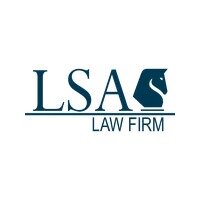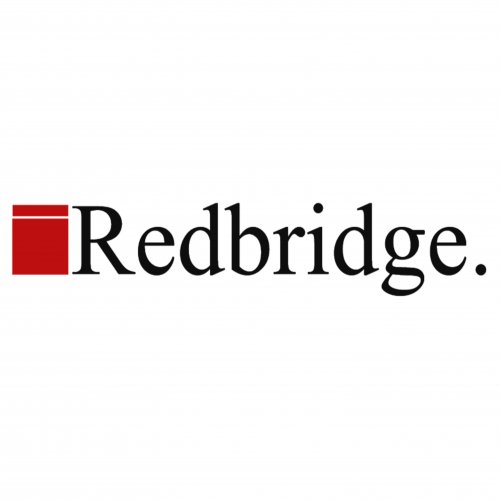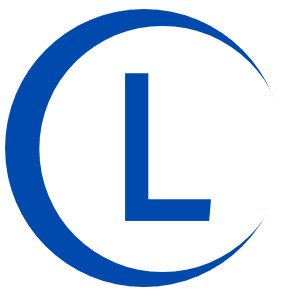Best Technology Transactions Lawyers in Armenia
Share your needs with us, get contacted by law firms.
Free. Takes 2 min.
Or refine your search by selecting a city:
List of the best lawyers in Armenia
About Technology Transactions Law in Armenia
Technology Transactions Law in Armenia encompasses a variety of legal practices involved in the development, transfer, licensing, and protection of technology. This field has become increasingly important as Armenia continues to strengthen its presence in the global tech market. The legal framework in Armenia covers agreements related to software development, IT services, data protection, and intellectual property rights, ensuring that transactions are conducted effectively and in compliance with international standards.
Why You May Need a Lawyer
Engaging in technology transactions can be complex and requires careful consideration of legal, technical, and commercial factors. You may need a lawyer in situations such as:
- Negotiating and drafting technology licenses and agreements.
- Protecting intellectual property rights.
- Ensuring compliance with local and international data protection laws.
- Handling disputes or litigation related to technology contracts.
- Understanding regulatory requirements for new tech products or services.
Local Laws Overview
In Armenia, several key laws are relevant to technology transactions:
- Intellectual Property Laws: Govern the protection and enforcement of copyrights, patents, and trademarks. Armenia is a member of several international treaties that impact IP rights.
- Data Protection Legislation: Ensures the privacy and protection of personal data processed by tech companies, aligning with EU standards such as GDPR.
- IT and Communications Law: Provides regulations for electronic communication and digital transactions, fostering a secure environment for tech operations.
Frequently Asked Questions
What is a technology transaction?
A technology transaction involves the sale, transfer, or licensing of technology products or services, including software, hardware, and related intellectual property rights.
How can I protect my software in Armenia?
You can protect your software through copyright registration and by obtaining patents for any novel technological solutions it includes.
What should I consider when drafting a technology contract?
Key considerations include the scope of rights granted, confidentiality obligations, payment terms, liability limits, and dispute resolution methods.
Are there any restrictions on data transfer in Armenia?
Yes, data transfers must comply with Armenian data protection laws, which are aligned with international standards to safeguard personal data.
What happens if there is a dispute over a tech transaction?
Disputes can often be settled through negotiation or mediation. If necessary, formal legal proceedings may be undertaken in Armenian courts.
How can I ensure my tech startup complies with local laws?
Consulting with a local technology lawyer can help ensure your startup adheres to all relevant regulations, protecting your business interests.
Are electronic signatures legally recognized in Armenia?
Yes, electronic signatures are legally recognized, provided they meet certain requirements stipulated by Armenian law.
What intellectual property rights are available for technology in Armenia?
Available rights include copyrights, patents, and trademarks, each offering different protections depending on the nature of your technology.
What is the role of a technology transaction lawyer?
A technology transaction lawyer assists in drafting agreements, protecting IP rights, ensuring compliance with laws, and resolving disputes related to technology transactions.
Can foreign companies engage in technology transactions in Armenia?
Yes, foreign companies can engage in technology transactions in Armenia, but they must adhere to local laws and regulations.
Additional Resources
For more information on technology transactions in Armenia, consider consulting the following resources:
- The Ministry of Justice of Armenia for legal texts and regulations.
- The Intellectual Property Agency of Armenia for IP-related inquiries.
- Local law firms specializing in technology law for personalized legal advice.
Next Steps
If you need legal assistance in technology transactions, consider the following steps:
- Identify the specific legal issue or transaction you need assistance with.
- Research and contact a reputable lawyer or law firm specializing in technology law in Armenia.
- Prepare relevant documents and information for your consultation with the lawyer.
- Discuss your needs and expectations with your lawyer to develop an effective legal strategy.
Lawzana helps you find the best lawyers and law firms in Armenia through a curated and pre-screened list of qualified legal professionals. Our platform offers rankings and detailed profiles of attorneys and law firms, allowing you to compare based on practice areas, including Technology Transactions, experience, and client feedback.
Each profile includes a description of the firm's areas of practice, client reviews, team members and partners, year of establishment, spoken languages, office locations, contact information, social media presence, and any published articles or resources. Most firms on our platform speak English and are experienced in both local and international legal matters.
Get a quote from top-rated law firms in Armenia — quickly, securely, and without unnecessary hassle.
Disclaimer:
The information provided on this page is for general informational purposes only and does not constitute legal advice. While we strive to ensure the accuracy and relevance of the content, legal information may change over time, and interpretations of the law can vary. You should always consult with a qualified legal professional for advice specific to your situation.
We disclaim all liability for actions taken or not taken based on the content of this page. If you believe any information is incorrect or outdated, please contact us, and we will review and update it where appropriate.
Browse technology transactions law firms by city in Armenia
Refine your search by selecting a city.











